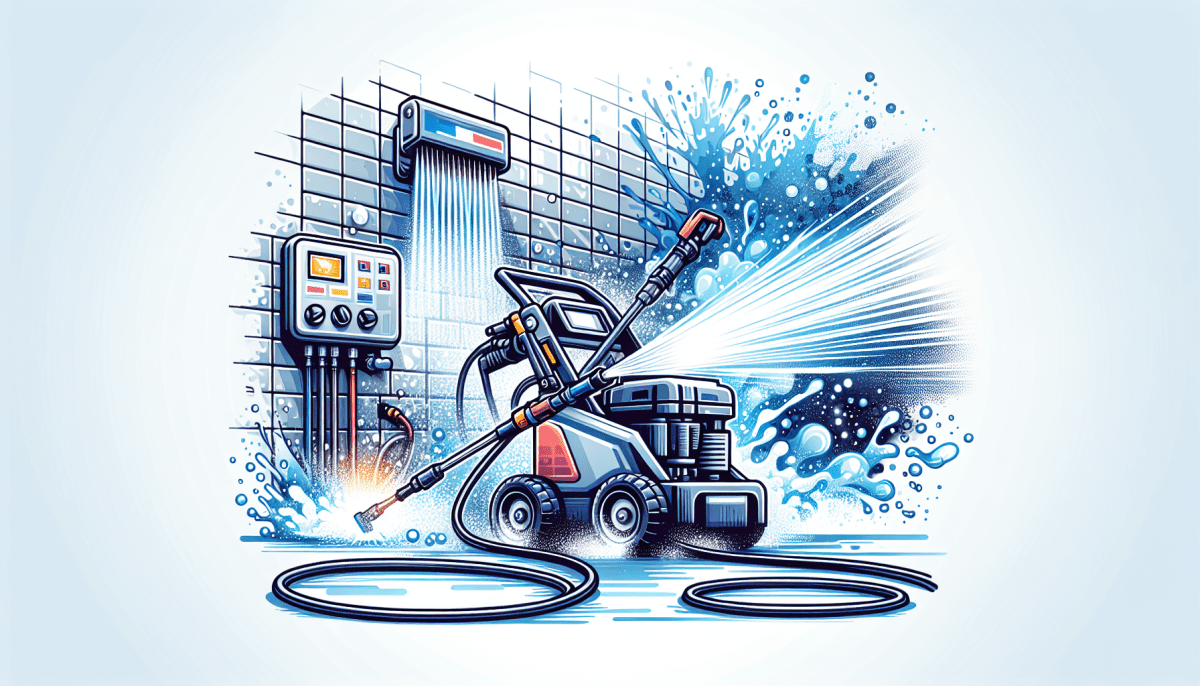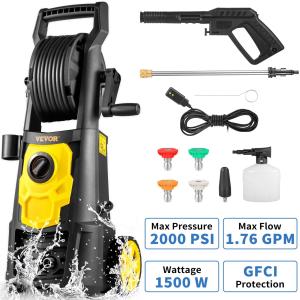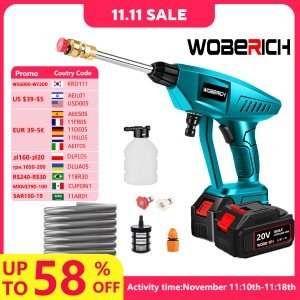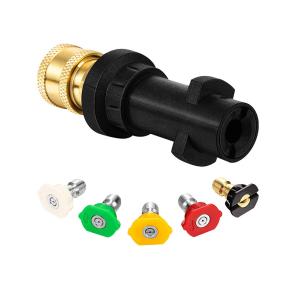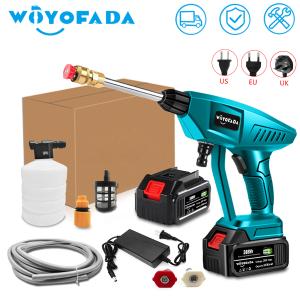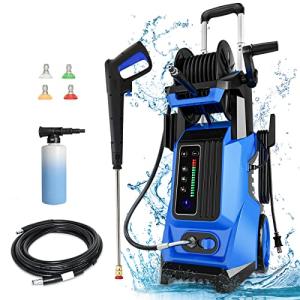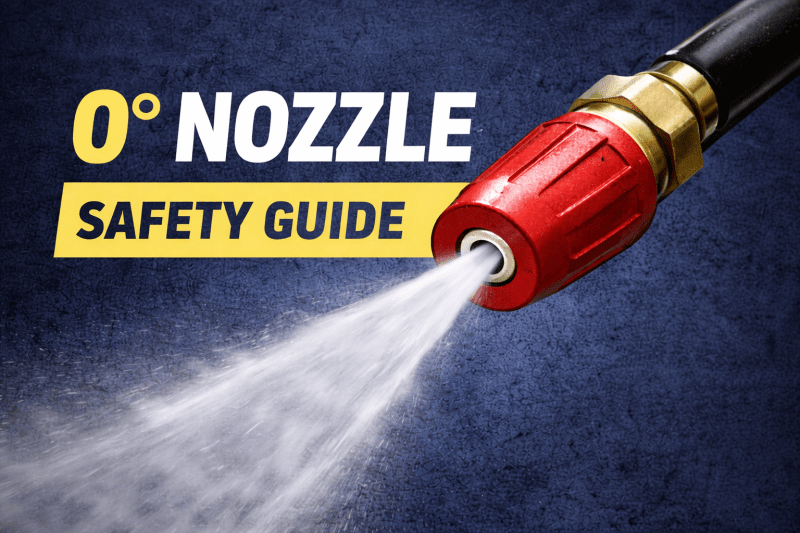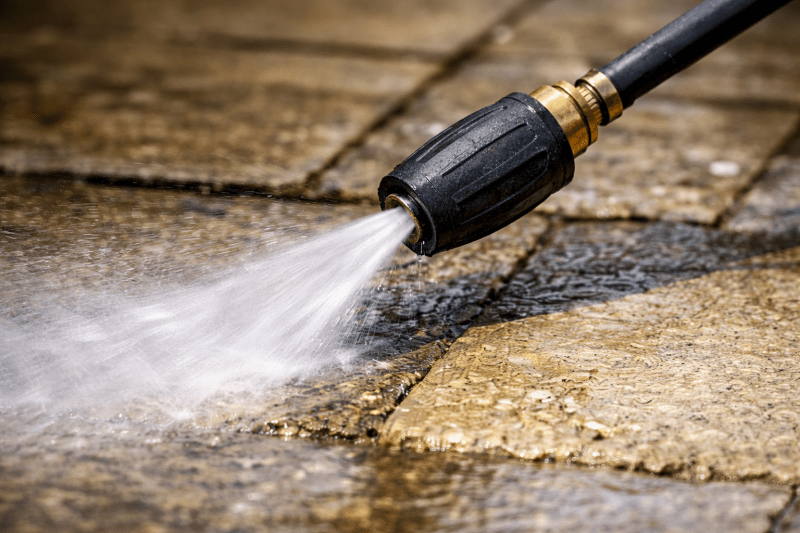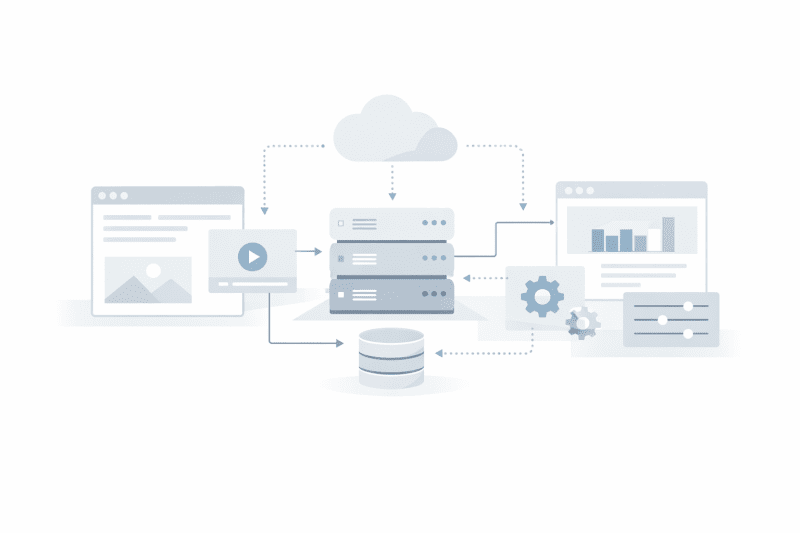Understanding the Basics: How Pressure Washers Work and What They're Used For
Pressure washers are powerful tools that use high-pressure water to clean and remove dirt, grime, grease, and other stubborn stains from various surfaces. These machines are commonly seen in commercial and industrial settings, but they are becoming increasingly popular among homeowners due to their effectiveness and efficiency.
The basic working principle of pressure washers involves taking in water from a source and pumping it through a high-pressure hose to a wand or spray gun. The water is then ejected at high pressure through a nozzle or tip, where it hits the surface being cleaned with tremendous force, dislodging dirt and grime.
The pressure of the water is adjustable, which means that you can choose the optimal pressure for the surface you are cleaning. For example, lower pressure is suitable for cleaning delicate surfaces like cars, while higher pressure is better for tougher tasks like removing stubborn stains on concrete surfaces.
There are two primary types of pressure washers: electric and gas-powered. Electric pressure washers are ideal for cleaning smaller surfaces like cars, patios, and outdoor furniture. They are quieter and emit no fumes, making them suitable for indoor use. Gas-powered pressure washers are more powerful and thus more suitable for heavy-duty tasks like cleaning decks, driveways, and sidewalks. They are also portable and hence convenient for use in remote locations with no access to electricity.
Pressure washers are used for a vast array of tasks, including cleaning outdoor furniture, decks, patios, driveways, fences, walls, and even roofs. They are also commonly used in industrial and commercial settings such as car washes, factories, and construction sites.
Pressure washers are powerful tools that require caution and diligence when using. The high-pressure water stream can cause serious injury, and it is essential to follow all safety precautions and instructions when using a pressure washer.
In conclusion, pressure washers are powerful tools for cleaning a wide range of surfaces. They work by using high-pressure water to dislodge stubborn dirt and grime from surfaces. They are commonly used both in residential and commercial settings for a broad range of tasks, and their effectiveness and efficiency make them an excellent tool for cleaning and maintenance.
Comparing Models: Choosing the Right Pressure Washer for Your Needs
When it comes to pressure washers, there are a variety of models to choose from. Each model has its own set of features and benefits, making it important to choose the right one for your specific needs. Here, we'll break down some of the most common models and their uses to help you make the best decision.
Electric Pressure Washers
Electric pressure washers are ideal for the typical homeowner who needs to clean decks, patios, cars and outdoor furniture. They are generally lightweight and easy to maneuver. They also tend to be quieter than gas-powered models, and they don't emit fumes. The downside is that they may not have the same power as gas models, making them less effective for tougher jobs.
Gas Pressure Washers
Gas pressure washers pack a powerful punch, making them ideal for tough jobs like cleaning large areas or removing paint. They are also typically more durable than electric models, and they can be used anywhere as they don't require an electrical outlet. The downside is that they are usually heavy and more challenging to maneuver. They are also louder and emit fumes, so they are best used outdoors in well-ventilated areas.
Cold-water Pressure Washers
Cold-water pressure washers are the most common type of pressure washer. They use water at ambient temperature, making them less effective than hot-water models when it comes to removing oil, grease or other stubborn stains. They are best used for everyday cleaning tasks like washing cars, rinsing off outdoor furniture or cleaning decks.
Hot-water Pressure Washers
Hot-water pressure washers are more powerful than cold-water models as they use heated water to break down tough stains. They are ideal for industrial or commercial use, but they can also be helpful for homeowners with tougher cleaning jobs. The downside is that they tend to be more expensive and require more maintenance.
Ultimately, the right pressure washer for you will depend on your specific needs. Consider factors like the type of jobs you need to complete, the amount of power you require and your budget. With this information in mind, you can make an informed decision and choose the pressure washer that will work best for you.
Maintenance and Safety Tips: Keeping Your Pressure Washer Running Smoothly
Pressure washers can last a long time and perform reliably if they are properly maintained. Here are some tips to help you keep your pressure washer running smoothly:
Before Using Your Pressure Washer
- Check the oil level in the engine and fill to the recommended level if necessary.
- Check the fuel level and make sure there is enough gas for the job at hand.
- Check the water supply hose and make sure there are no kinks or leaks.
- Inspect the high-pressure hose for any visible damage, such as cracks or splits. If there is damage, replace the hose before using the pressure washer.
- Make sure all connections are tight and secure.
During Use
- While using the pressure washer, avoid using hot water. This can damage the pump and other components.
- Always wear proper eye and ear protection while using your pressure washer. The high pressure can cause serious injury to your eyes, and the noise level can be damaging to your hearing.
- Never point the pressure washer at people or animals. The high pressure can cause serious injury.
- Use the appropriate pressure and nozzle for the job. Using too much pressure can damage surfaces, while using too little pressure will not be effective for cleaning.
After Use
- After using your pressure washer, turn off the engine and let it cool down before storing.
- Disconnect the water supply hose and high-pressure hose from the pressure washer.
- Flush out the detergent tank and hoses with clean water.
- Store your pressure washer in a dry, cool place, out of reach of children and pets.
Regular Maintenance
- Change the oil in the engine as recommended in the owner’s manual.
- Clean or replace the air filter as recommended in the owner’s manual.
- Inspect the spark plug and replace if necessary.
- Regularly check the oil level in the pump and add oil if necessary.
- Inspect the high-pressure hose and replace if there is any damage.
By following these maintenance and safety tips, you can help ensure your pressure washer lasts a long time and performs reliably. Remember to always read and follow the owner’s manual for your specific pressure washer model.
VEVOR 2000 PSI Electric Pressure Washer with Hose
Experience powerful cleaning with this easy-to-use electric pressure washer designed for your tough outdoor jobs
Product information
$109.99 $104.91
Product Review Score
4.97 out of 5 stars
199 reviews